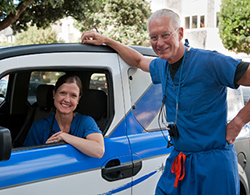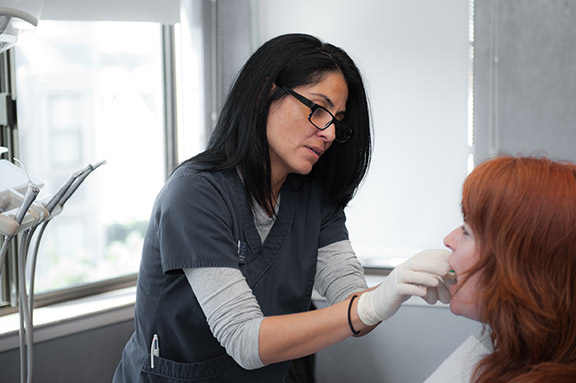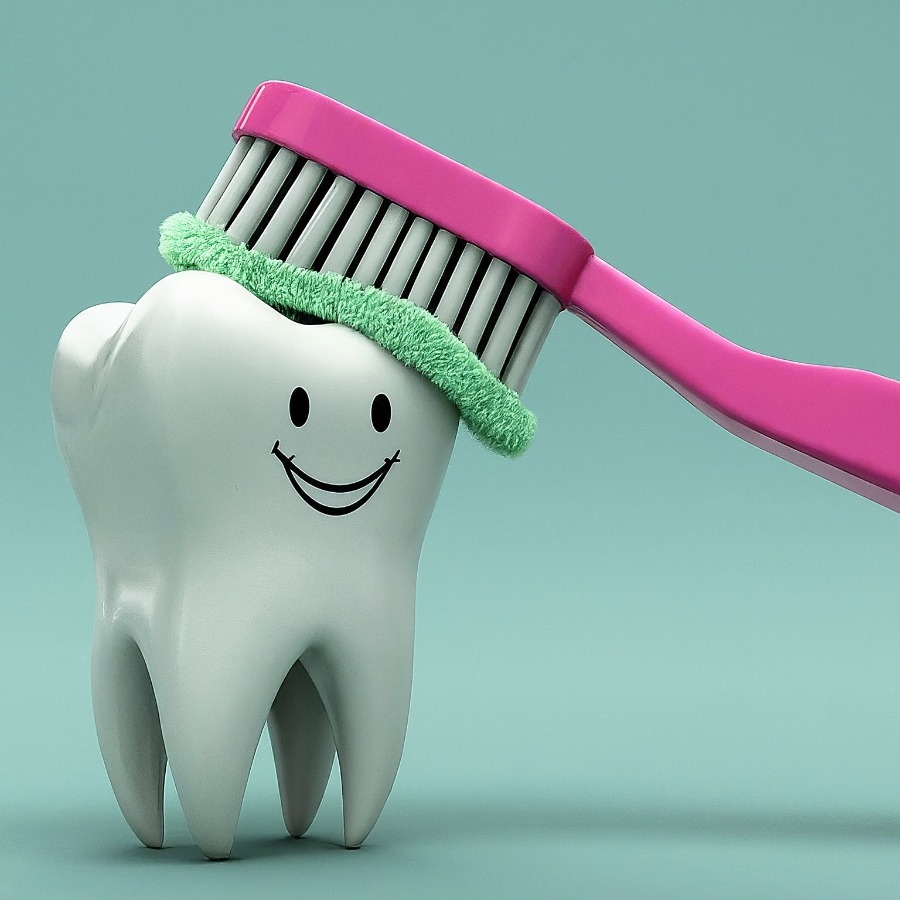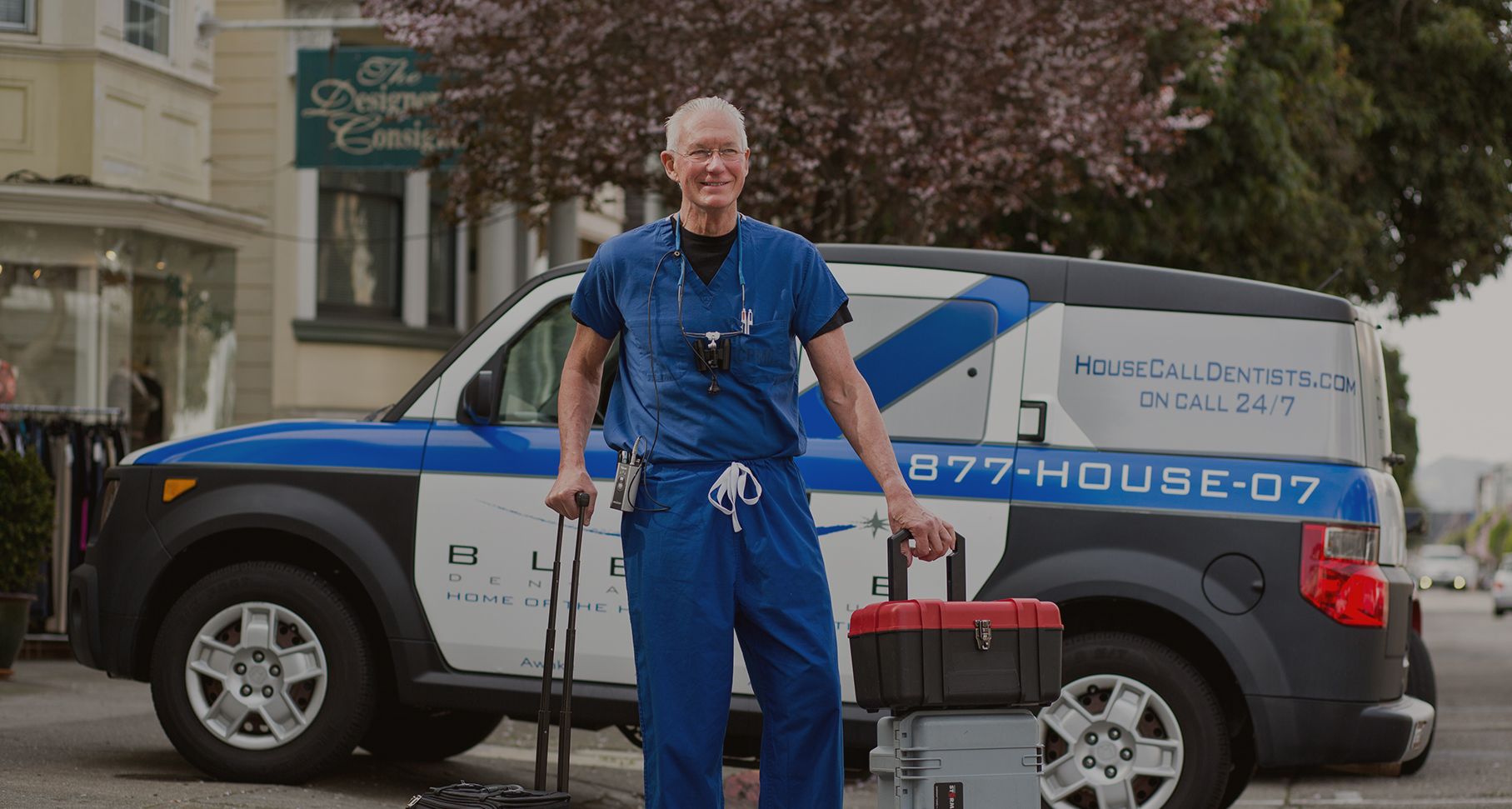Special Needs
Autism Acceptance Month: The Importance of Oral Health Care for People with ASD
In recognition of Autism Acceptance Month, the Blende Dental Group is emphasizing the importance of oral health care for individuals with Autism Spectrum Disorder (ASD). They face unique challenges when it comes to maintaining good oral hygiene. Yet as we’ve seen, these individuals often go without proper oral care given the lack of dentists who have the specialized skills, training, and capabilities to serve their unique needs. Our goal is to empower caregivers and individuals with ASD to prioritize oral health and enjoy a positive dental experience.
Autism Acceptance Month
April is Autism Acceptance Month, an opportunity to deepen our understanding of this complex developmental disability. According to the Autism Society, the project aims not just to recognize those with ASD, but to “shed light on the diverse experiences and perspectives within the Autism community, fostering greater awareness, understanding, and inclusion. By asking questions about health, safety, employment, and other key topics, we can amplify the voices of individuals with Autism and their families, to create a more inclusive society.”
Despite progress, misconceptions of autism persist, and as the advocacy group Autism Speaks explains, “The frequency in which people are excluded threatens access to the vital information, resources and support autistic people and their families need.”
Autism and Oral Health: Challenges of Accessing Dental Care
According to the Centers for Disease Control and Prevention (CDC), 1 in 54 children is diagnosed with an autism spectrum disorder (ASD). Oral health is instrumental to overall physical health and quality of life. Without a network of dentists trained in advanced sedation modalities and in treating people with special needs, the dental problems of an already underserved population will continue to exacerbate. Last July, in our article “People with Special Needs Are Facing a Growing But Seldom Discussed Oral Health Crisis,” we discussed at length the pressing challenges that patients with ASD encounter.
For example, an investigation in Wisconsin revealed “how experts estimated hundreds were on years-long waiting lists in Wisconsin as the number of dentists trained for sedated care dwindled.” The team of investigative journalists at Wisconsin’s News 3 Now discovered that special needs patients in the area languished on waiting lists for years to receive dental care that required “crucial in-house or hospitalized sedation.”
California has also experienced the same oral health hurdles as Wisconsin, allowing us to infer that the problems transcend regional events and reach much farther across the whole of the United States. As Kristen Hwang reported for Cal Matters, “For Californians with special needs, getting to see the dentist can take years.”
Tens of thousands of Californians with disabilities require special accommodations for dental care, but only a limited number of centers in the state can treat them. Traditional dentists outside of these specialized facilities lack the training and tools to care for the special needs population. Hwang recounted the story of one patient in her article:
The first time Namirah Jones visited the dentist at age 5, her meltdown brought the office to a halt. Her mother, Mia Costley, her grandmother and a dental assistant held her down while she screamed. The dentist couldn’t even get a mirror in her mouth.
“That’s when it was determined that no dentist could ever work on her; she would have to be put to sleep,” Costley said from their apartment in Corona.
Jones is now an adult. She suffers from severe autism and cognitive disabilities. But in this, she is not an outlier – Jones is one of tens of thousands of patients in California who cannot receive care from most of the 30,000 dental practices in the state. Blende Dental Group is just one in a small handful of dental practices that can treat patients with ASD through in-office visits, sedation, and house calls.
Why Oral Health Matters for Individuals with Autism
Research suggests that individuals with ASD are more likely to experience oral health problems compared to the general population.
- Sensory Sensitivities: The taste, texture, and sounds associated with brushing and flossing can be overwhelming for some individuals with ASD.
- Difficulties with Communication: Expressing discomfort or pain in the mouth can be challenging for some individuals with ASD, leading to delayed dental care.
- Dietary Habits: Individuals with ASD may have restricted food preferences, favoring sugary or sticky foods that contribute to cavities.
- Repetitive Behaviors: Some individuals with ASD may engage in behaviors that damage teeth, such as bruxism (grinding teeth) or chewing on hard objects.
- Medications: Certain medications used to manage symptoms of ASD can dry out the mouth, increasing the risk of cavities.
Autism and Associated Common Oral Health Issues
For individuals with autism, some oral health issues are more prevalent.
- Dental Caries (Cavities): Difficulties with brushing and flossing can lead to plaque buildup and cavities.
- Gingivitis and Periodontal Disease: Untreated plaque can progress to gum inflammation (gingivitis) and eventually gum disease.
- Bruxism (Teeth Grinding): This can cause tooth wear, jaw pain, and headaches.
- Oral Motor Difficulties: Challenges with chewing and swallowing can affect oral hygiene habits.
- Dental Trauma: Repetitive behaviors or self-injurious habits may lead to chipped or broken teeth.
Creating a Positive Dental Experience for People with Autism
Understanding the unique needs of individuals with ASD is crucial for a successful dental visit.
Before the Visit
- Find a Dental Professional with Experience: Look for a dentist who has experience treating patients with ASD and understands sensory sensitivities.
- Prepare for the Visit: Social stories or picture books can help explain what to expect during the appointment.
- Desensitization Techniques: Practice brushing teeth with a soft toothbrush at home to gradually introduce the sensation.
During the Visit
Caring for any patient with special needs demands a specialized approach and a team that has experience handling patients with physical, cognitive, and emotional needs. Delivering exceptional care hinges on providing an individualized and tailored experience. Here are a few examples of how the Blende Dental Group works to create a positive treatment experience with predictable outcomes for patients with ASD.
- Working within the patient’s comfort zone and taking small steps to ensure that they feel a sense of comfort and ease.
- A well-regimented and systematic method for conducting examinations that ensures a shorter yet efficient process.
- For those unable to visit our offices, in-home care is always an option and is always encouraged.
- Strategizing in a consultative manner with caregivers before any actions take place to learn the patient’s triggers, sensitivities, methods of soothing, and ways to better manage the appointment based on the patient’s medical, physical, mental, or behavioral condition.
- Partnering with caregivers to learn their tips and tricks for interacting with the patient and emulating those approaches during visits.
- Not forcing treatment upon special needs patients. If they are uncomfortable in the chair, they should be helped back to their safe spaces.
- Offering flexible scheduling options or in-home visits.
- Remaining in constant communication with caregivers to explore treatment options, which may include general anesthetics, alternatives, or actual sedation if no other avenues exist.
Sedation
Sedation modalities represent a breakthrough in dentistry that allows patients with special needs, phobias, developmental or cognitive challenges, and physical limitations to receive the care they need without discomfort. For patients and dentists alike, these options open up new treatment approaches to those who would otherwise not have easy access to critical oral health care.
- Nitrous Oxide
- Oral Medication
- IV and general anesthesia with an MD anesthesiologist
At-Home Care Strategies
While at home, caregivers and family members can help maintain the oral health of loved ones with ASD by following some simple tips.
- Visual Aids: Use timers, picture charts, or reward systems to create a consistent oral hygiene routine.
- Electric Toothbrushes: Some individuals find electric toothbrushes easier to tolerate than manual brushes.
- Flavored Toothpaste: Choose a toothpaste with a mild flavor that is pleasant to the individual.
- Positive Reinforcement: Offer praise and encouragement for completing brushing and flossing tasks.
Building a Team for Oral Health Success
Collaboration between caregivers, dentists, and other healthcare professionals is essential for achieving optimal oral health for individuals with ASD. Here’s how you can build a strong support team.
- Communicate with Healthcare Providers: Inform the dentist about any medical conditions, medications, and specific needs related to ASD.
- Explore Therapy Options: Occupational therapists can help develop sensory-friendly oral hygiene routines.
- Seek Support Groups: Connecting with other caregivers can offer valuable information and emotional support.
By understanding the challenges faced by individuals with ASD and implementing these strategies, we can ensure that everyone has the opportunity to achieve a healthy, bright smile.
Beyond Autism Acceptance Month: About the Blende Dental Group
At the Blende Dental Group, treating special needs patients, including those with autism spectrum disorder (ASD), has become a defining hallmark of our organization . We understand that dental care can be challenging for some people with ASD, and we have built our reputation as a provider of choice through our unwavering commitment to create a safe and supportive environment for all of our patients.
We are passionate about advocating for people with disabilities and ensuring that they have access to quality healthcare. We are also active members of the special needs community and regularly participate in events like the SFASA-Stanford Adult Autism & DD Conference.
The team at Blende Dental Group is committed to bringing expert, compassionate dental care to all who need it regardless of age or disability. For over 40 years, we have removed barriers to care by delivering premium dental services to those who can’t tolerate or access traditional solutions.
Sedation Options
Sedation options are available in our offices and at the hospital. We provide oral medications, inhalation agents, I.V. sedation, and general anesthesia. Our sedation dentistry practice uses physician anesthesiologists — medical doctors just like your primary care physician and surgeon. They specialize in anesthesia care, pain management, and critical care medicine, and have the necessary knowledge to understand and treat the entire human body.
House Calls
As the home of House Call Dentists, the Blende Dental Group can deliver care at patients’ homes, residential facilities, skilled nursing facilities, or in hospitals. Our team uses portable equipment and sterilization procedures that exceed hospital-grade standards to deliver in-home care.
Case Study
About 60% of the patients we see at the Blende Dental Group come by way of referrals from other providers who cannot perform the necessary procedures. Check out a case study to see how we recently helped a 20-year-old non-verbal woman with autism, who was referred to the Blende Dental Group (BDG) by the University of New Mexico School of Dental Medicine special needs program.
Her severe dental damage was caused by regurgitation and bruxism, resulting in loss of front teeth, extreme erosion, and decrease in vertical dimension. She required sedation for all dental procedures. Due to the urgency of care needed, the University of New Mexico referred the case to BDG. The BDG tries to serve as an end point of a dental labyrinth of unfulfilled expectations and outcomes. We strive to break that cycle by creating awareness within our network.
In a teleconsult with the family and dental providers in Albuquerque, our team was able to assess the situation and determine an effective treatment plan. The patient’s mother said that she loves to smile and wanted her to have her front teeth again as soon as possible. Our mission was to give her daughter the smile she wanted.
The patient and her mother traveled to Blende Dental Group’s San Francisco office. Under general anesthesia in-office, our dentists prepared and temporized a long span anterior bridge and 8 posterior temporary crowns to open her bite. The bridge and final crowns were cemented at a second sedation visit just weeks later. The anterior teeth were restored esthetically with inconspicuous metal incisals and the posteriors with high palladium alloy crowns to resist wear.
Come See Us
For new patients or caregivers interested in learning more about how the Blende Dental Group can help, book a consultation today. If you’re an existing patient, schedule an appointment for a checkup or a spring cleaning.
Image by Welcome to All ! ツ from Pixabay
Let's brighten
that smile
The when and where are up to you.









